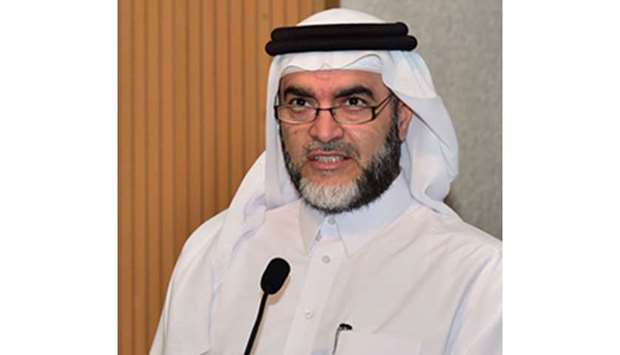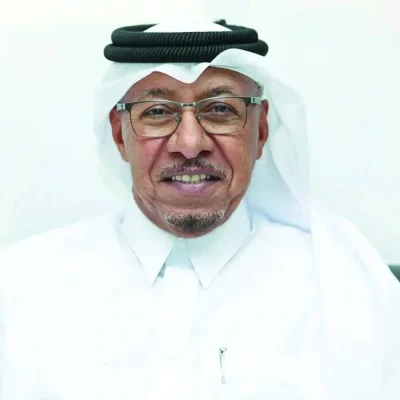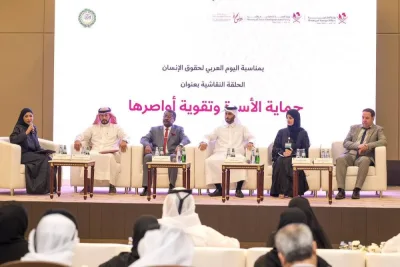Physical distancing is important to slow down the coronavirus outbreak. However, physical and mental toughness is also necessary to face off the virus successfully.
Social distancing is compulsory during the global pandemic as experts have been laying emphasis on avoiding human to human physical contact. The lockdowns for longer periods of time are testing the nature of man as a social being.
It is high time we followed the advice of experts on how to face these unusual times and challenges. Dr Ahmed Abdulrahman al-Emadi, Dean of The College of Education at Qatar University, is an associate professor of sports management in the department of psychological sciences with an experience of teaching spanning over 14 years.
Dr Ahmed’s research interests cover a wide range of areas, such as sports management, sports tourism, sports governance, sports marketing and mental training. He has published many articles in the areas of sports management, leadership in sport, and evaluation of sports marketing, including a book entitled Leadership in Sport.
The expert, during his recent conversation with Community, shed light on how people in general and students in particular can tackle issues related to the social distancing phenomenon.
“Social isolation/avoidance is an issue for individuals at every age but the consequences of this problem manifests itself differently in every age group. As an academic, I can focus on school children and university-aged youth. “God created human beings as social creatures and He tightly tied our physical, psychological, and developmental health with our social well-being. Though humans can survive in isolation for a short while, prolonged, forced or volitional population-wide isolation causes both personal and social problems, which are interrelated and interdependent. For example, children in their early teen years tend to be sensitive to social challenges, so their sense of belonging at school is important. Research also finds that adolescents’ development of a sense of belonging is important for creating social and emotional well-being and academic success. Studies have also found that in this age group, separation from friends causes more depression than separation from parents because friends are the preferred source of social support during adolescence. Much research has proven that extended social separation causes depression.”
Dr Ahmed underlines the significance of being physically fit in the fight against social isolation. “Foremost, focus on your physical health. Eat healthy foods and in moderation, sleep well, and exercise. Preventively, abide by medical and governmental recommendations.
“We need to schedule frequent virtual social contact. We are lucky to live in a time when technology allows us to see and hear our friends and family in real time and high definition. Although this is not a replacement for the real thing, yet it keeps social connections strong.
“Participate in physical activity. Aside from the well-known physical benefits of exercise, research is very clear about the importance of physical activity in managing depressive and psychologically straining circumstances. If the conditions do not allow you to exercising outdoors, join a virtual exercise class. These classes have become very popular lately and are effective, particularly when they are held live because they give a similar sense of community to going to a gym.”
The sports expert also lays stress on the need for having prayers. “Research suggests that prayer increases feelings of social connectedness. During hard times like these, prayer can help you feel a bigger sense of attachment to God and to humanity. Taking time to keep the five prayers helps focus your mind on compassionate thoughts and to gain strength from belief. Take heart in the belief that this trial and these tribulations will be over soon. As Qura’n notes: “So, verily, with every difficulty, there is relief”.
Dr Ahmed has served as a consultant to the president of the International Council for Health, Physical Education, Recreation, Sports and Dance (ICHPER-SD), chair of the board of trustees at ASPIRE Academy and event manager of the International Society for Sports Sciences in the Arab World. He has been a member og many different professional health and sports organisations at both national and international levels, including Society of Health and Physical Educators (SHAPE), North American Society for Sports Management (NASSM), Pan-Asian Society of Sport & PE (PASSPE), American Association for Public Opinion Research (AAPOR), and World Association for Public Opinion Research (WAPOR).

u201cResearch suggests that prayer increases feelings of social connectedness. During hard times like these, prayer can help you feel a bigger sense of attachment to God and to humanity. Taking time to keep the five prayers helps focus your mind on compassionate thoughts and to gain strength from belief. Take heart in the belief that this trial and these tribulations will be over soonu201d u2014 Dr Ahmed Abdulrahman al-Emadi


